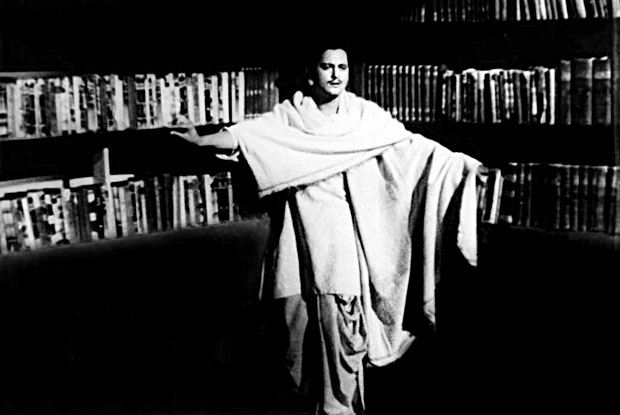Guru Dutt’s Pyaasa | The Classic Reviews
September 17, 2023I first watched Pyaasa in my mid-20s as a part of an exercise to know the work of the greats. This was on a 14-inch desktop, playing the movie from a Moser Baer VCD that I picked up from the nearby Big Bazaar. I had watched almost the entirety of Guru Dutt’s portfolio, left spellbound by most of it. But what stayed with me was the melancholy of Kagaaz Ke Phool and a brilliant war sequence in Baaz. For years after that, I maintained that Kagaaz Ke Phool, a somewhat biographical tale, was Guru Dutt’s supreme work, almost arguing with anyone who debated for Pyaasa.
Truth be told, I was super impressed by Pyaasa, but the grief of KKP probably hit a young man dealing with his own quarter-life crisis, battling bad breakups and messed-up career aspirations all too hard for him to appreciate what Pyaasa had to offer.
Today, I am not accepting that Pyaasa is the better film. Frankly, that’s an impossible vote. These are two stellar movies. But maybe Pyaasa needs some growing up, not just emotionally but also in worldly motives for you to truly appreciate its beauty.
Guru Dutt plays Vijay, the poet who has lost much because of his poverty. He loses his lady love to the riches of another man, and loses his family too… understandably he is bitter – something that was later attempted by Imtiaz Ali in Rockstar, but not so successfully. At some level, there is also an underplayed arrogance, a belief in his own work. He does not mince words, even as he stands up to the boss at the one job he manages to find, stating his work is not rubbish. He mostly talks about love in his poems, although his capability to do something different is also showcased in his creating a catchy jingle for a friend, a roadside masseur. ‘Sar Jo tera Chakraye’ doubles the business of Abdul (Jonny Walker), the masseur. But it’s not a job that he is looking for… at least that’s not his stated struggle. The struggle is for acceptance.
On the face of it. Pyaasa is about a poet who fails to find the appreciation he deserves, his work finding no takers at all. Except, for a prostitute who falls in love with the man through his poems. It is a black comedy, of a morally bankrupt world happily appropriating someone’s life’s work for profits. It also speaks of love and some sort of goodness through a couple of characters. But for most parts, it is a dark world.
But a closer look and you will find subtleties that you may miss when younger unless you are much brighter than I was at 25. This is Guru Dutt making a statement. This is his statement in the debate of capitalism and socialism. And he does it through poetry – the songs, more than his dialogues. And more interestingly, his take on something far more pertinent today – nationalism, as his protagonist sings, “Jinhe Naaz Hai Hind Par Woh Kaha Hai”, seeing the pain in the streets of a Sonagachi. This is also when the poet in Vijay sees beyond his own sorrows, into a world that is far too dark to see art. A rather important giveaway is where Dutt sets this story – Kolkata, the city that has been the bastion of communism in the country. This despite the fact that he could have very well set the story in Lucknow, the citadel of Urdu poetry – the language in which Vijay seems to be writing his poetry.

The film’s use of symbolism is exemplary. Guru Dutt’s arms stretched out, resting on a bookshelf, could well remind you of Christ. Here was a man crucified for his love for literature. A similar image towards the end of the film, as the protagonist stands at the door of an auditorium filled with people to pay homage to the poet believing he is dead. He stands there looking down at the people he desired love from, as he sings “Yeh Duniya Agar Mil Bhi Jaye”.
And yet, it was not these subtexts that had made Pyaasa the blockbuster that it was. It was possibly Guru Dutt’s biggest hit as a director, a complete contrast to the disaster that Kagaaz Ke Phool was. And there lies the genius of Dutt. He packaged Pyaasa as an entertainer with remarkable music, brilliant sets, and romantic sequences… the film’s screenplay was stitched together by its songs, each a chartbuster in its own rights. Each has sustained a fan base to date – from the beautiful Jaane Who Kaise Log to the charismatic Hum Aap Ki Aankhon Mein, which is a trend of sorts in the way it was shot. Here the credit is shared equally by Sahir Ludhianvi – who speaks for Vijay, and SD Burman. Maybe a bit more of one than the other.
Today Pyaasa finds in me a more accepting audience. Not just marveling at the way it was shot and performed. Pyaasa was almost foretelling. Through it, Guru Dutt may have given us a glimpse into the future as it would be – decadent, futile… driving the idealistic to disillusionment. Jala Do, Jalo Do… Jala Do Yeh Duniya… but also, a world where love could be the only refuge. A Vijay hopes for, as he decides to find with Gulabo (Waheeda Rehman).
We welcome your comments at letters@friedeye.com





